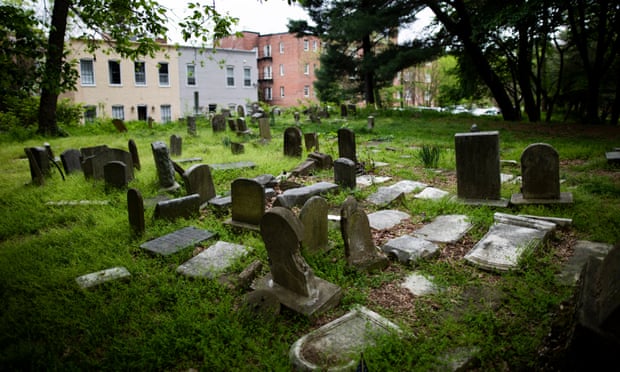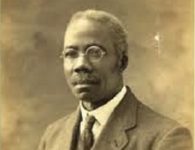
Black burial sites are struggling for survival. Such struggles should be interpreted as elemental battles over the meaning, matter, and worth of black life, history, and memory. Take the Boyd Carter cemetery in Jefferson county, West Virginia, a historic African American burial ground that’s been active since 1902. In early April 2019, the West Virginia Department of Environmental Protection approved a permit for a natural gas pipeline extension to be placed within feet of the historic cemetery. If built, the pipeline would transport gas to a planned heavy manufacturing facility roughly a quarter-mile to the east.
In conjunction with the pipeline’s projected path, the state’s department of transportation has privately expressed its intentions to widen the road adjacent to the cemetery to transport heavy machinery to the industrial plant. Any road widening would most certainly disrupt bodies at rest.Advertisement
With increasing frequency, it seems, local activists around the country are fighting to preserve historic African American cemeteries from destruction, desecration, and erasure by a rising tide of residential gentrification, heavy industry, and infrastructure development.
Whereas most commentary on gentrification underscores the problem of residential displacement, Boyd Carter descendants want to ensure that the ongoing dislocation of black burial sites is added to that conversation. Historic African American cemeteries often represent the last gasp of a rich history, a history that is often scarcely recorded elsewhere. If black lives are to matter in life, then they also must matter after life.
In just the last year, community leaders from Virginia to Florida, from Pennsylvania to Connecticut – and now West Virginia – have been engaged in several publicized struggles to ensure that such sacred sites are rightfully preserved. Insofar as the history of race has always been a history of access to space, African American cemeteries have served an important community function.
“Since the early 20th-century,” notes Brian Ross, a descendant living nearby, “Boyd Carter was known as a black cemetery in Jefferson county. You didn’t have to buy a plot here. You didn’t have to fight for space here. There was always room for you. But this fight today, this is a fight for racial justice.”
“Listen,” he says as he draws back a breath, “a cemetery with people of any nationality shouldn’t be touched. People wouldn’t attempt to build a highway or a pipeline through Arlington National Cemetery, right? That would be shut down real quick. So why here? Why this historic African American cemetery?”
Shelley Murphy, a descendant and a professional genealogist living in Virginia, said she was unaware of West Virginia’s construction plans until a month ago. “I have at least seven maternal relatives buried in Boyd Carter, yet I was never contacted by any state agency or any other preservation society.” She describes pipeline development and road widening efforts as a problem of invasion.
Teresa Vega, a genealogist, family historian, and public educator, was involved in a similar public fight last year in Connecticut. She took on the town of Greenwich to ensure that a historic black and indigenous burial site was not annexed by a family looking to expand its residential property. “Cemeteries let us know that our ancestors inhabited a physical space,” she tells me. “By erasing them, by desecrating them, you are removing their physical presence in this world. When you deny us our ancestor’s sacred space what you are doing is trying to erase our history and culture.”
“Everyone who has ever lived has the right to have their stories told and preserved. They have a right to a sacred space where they can rest in peace,” said Vega. “We need to tell their stories.”
The fight to save Boyd Carter and other historic African American cemeteries around the country demonstrates that the movement for racial justice spans space and time. If black burial sites are struggling to survive, then so, too, is black history. Contestations over history, memory, and space reveal just how much is at stake in efforts to preserve the black past, present, and future.
This article was first published at:
https://www.theguardian.com/commentisfree/2019/apr/27/gentrification-is-erasing-black-cemeteries-and-with-it-black-history



















1 Comment
Its sad that in This day and time even the “Spirt”and “Resting Place” of a black descendant cant be left alone in Peace. We’ve already lost so much and have been discredited throughout centuries. Why keep wielding the hatchet of such hate and distain? I guess even being returned to the dirt from which we All come in peace…too much like right. All of whom lay at rest in this cemetery were buried as Slaves. Any real human being with an once of decency would leave them to remain as they are Free in their space. Lawfully leave them be.